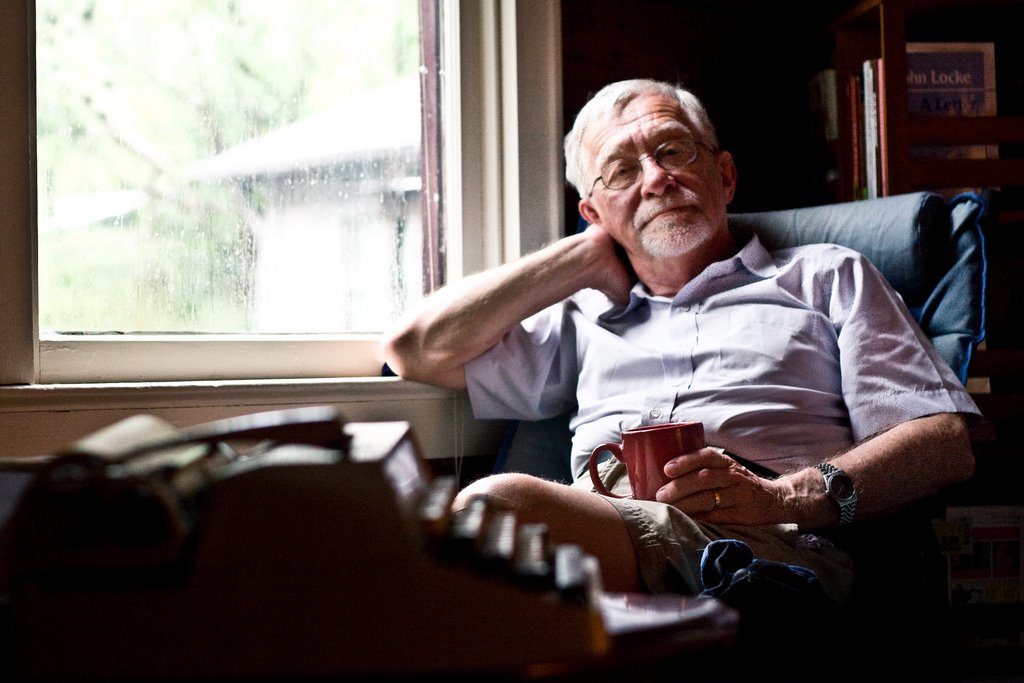In March the Swedish original edition of my selected and new poems "Elden och döttrarna" will arrive at Atlantis Stockholm.
A German edition,translated by Barbara M Carlson and Verena Reichel in joint translation is contracted with Hanser in Munich.For the English edition contract is still pending.
As a specimen the first poem of the book "Haren" will be given here, in original, in Maria Freijs English and in Barbara M CArlsons German.
--------------------------------------------------------
Haren
En eftermiddag fanns han plötsligt.
Alldeles stilla mellan syrénen och vinbärsbusken.
Precis som hos Dürer;
öronen längre än huvudet
och undersidan vit.Stora milda ögon.
Varför satt han så stilla
frusen till bild i eftermiddagsljuset ?
Hade han ett större förtroende
till oss än till andra människor ?
Vad hade han för skäl till det ?
Mycket rörd,nästan smickrad
stängde jag dörren. Gick tillbaka.
Till mitt eget.Nästa dag
fann jag honom liggande
i en egendomlig ställning,
något mellan sovande och embryo
utanför verkstadsdörren.
Några droppar ur vattenkannan
fick honom att ta några tveksamma steg
som om han inte längre hade tilltro
till världen och dess bilder
Det var nästa dag som jag insåg
att han måste vara blind.
Det var när jag fann honom
drunknad och mjuk som en trasa
intill båtbryggan. Vad jag hade
sett som stilla lugn och tilltro
var blindhet och ingenting annat.
”Naturen är god” står det
På vissa paket. Av märket Bregott.
Naturen är god.
Och hur vet ni det
margarinmånglare ?
The Hare
One afternoon, he was just there.
Totally still
between the lilac and the black currants.
Just like Dürer’s:
its ears longer than its head
and white underneath. Big, mild eyes.
Why was he sitting so still,
frozen into an image in the afternoon light?
Had he a greater confidence
in us than in other people?
What was his reason for that?
Very moved, almost flattered,
I closed the door. Went back.
To mine. The next day
I found him lying
in an odd position,
somewhere between sleeping and embryonic,
by the door of the shed.
A few drops from the watering can
made him take a few hesitant steps
as if he no longer trusted
in the world and its images.
It was the next day that I realised
that he must be blind.
It was when I found him
drowned and soft like a rag
next to the jetty. What I had
seen as a quiet calm and trust
was blindness and nothing else.
‟Nature is good,” state
certain packages.
Of the brand Bregott.
And what would you know of that,
margarine mongers?
Der Hase
Eines Nachmittags war er plötzlich da.
Unbeweglich zwischen Flieder und Johannisbeeresträuchern.
Genau wie bei Dürer;
die Ohren länger als der Kopf
auf der Unterseite weiß. Große sanfte Augen.
Warum sitzt er so still
im Nachmittagslicht wie eingefroren in ein Bild?
Hatte er größeres Vertrauen
zu uns als zu anderen Menschen?
Welchen Grund gab es dafür?
Bewegt, fast geschmeichelt
schloss ich die Tür. Ging zurück
zu dem, was mein ist. Am nächsten Tag
fand ich ihn, liegend
in einer seltsamen Stellung,
zwischen schlafend und embryonal
vor der Tür zur Werkstatt.
Wenige Tropfen aus dem Wasserhahn
ließen ihn einige zweifelnde Schritte tun
als hätte er kein Vertrauen mehr
zur Welt und seinen Bildern.
Am nächsten Tag erst begriff ich
daß er blind war
als ich ihn fand
ertrunken und weich wie einen Lappen
am Bootssteg. Was ich für
große Ruhe und Vertrauen hielt,
war Blindheit und nichts anderes.
”Die Natur ist gut” steht
auf manchen Verpackungen. Der Marke Bregott.
Die Natur ist gut.
Woher wisst ihr das,
ihr Krämerseelen?
Subscribe to:
Post Comments (Atom)


No comments:
Post a Comment